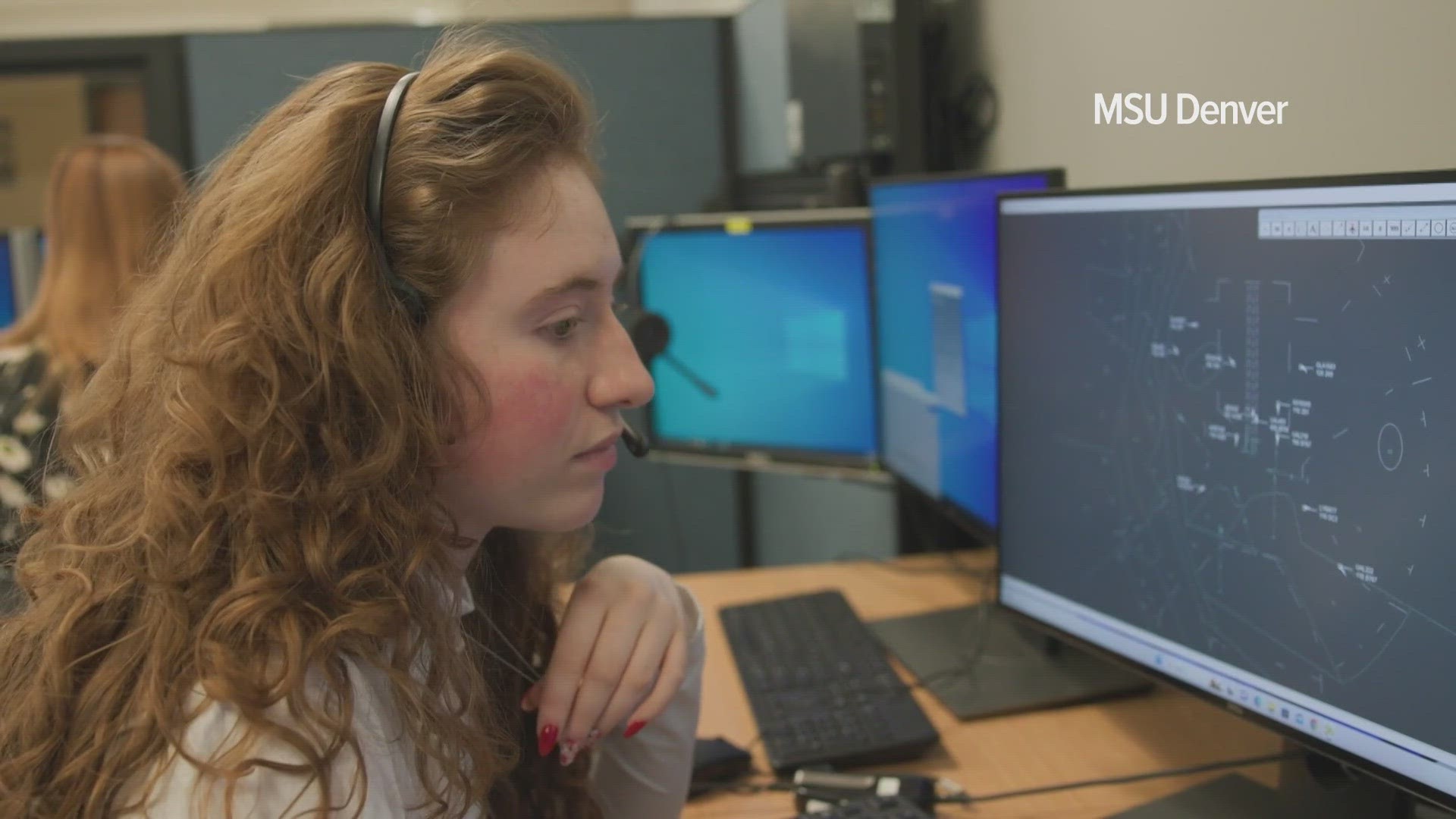DENVER — Air traffic controllers are our eyes on the sky, helping make sure planes take off and land smoothly. However, a shortage of controllers is leading to some near misses on runways.
Now, aviation experts are raising the alarm on safety.
"It's our job to keep them separated and get them on their way or come in safely," said Carmen Reale, adjunct professor of air traffic control at MSU Denver.
For 25 years, Reale helped ensure planes could land and take off safely while working as an air traffic controller in New York. Now, he teaches that skill to students.
"So this is our simulator. We have 18 simulators, and we can put in different scenarios, mostly with Denver," Reale said, explaining the equipment they use to help train air traffic control students.
It's a tough job— and critical for safety.
"Yes," Reale said. "You want to be 100 percent right just about all the time."
It's a demanding job any day, and it's often made harder by outside factors.
"You don't want to be wrong," Reale said. "Icing, snow, thunderstorms, computer problems. There's a lot of things that can go wrong, but we're trained to go with the flow."
But Reale says air traffic control's biggest problem right now is staffing.
"Right now, there's a critical shortage. Probably the worst it's been since 1981," Reale said.
And hiring new controllers is far from simple.
Reale explains that, even after graduating college, people who want to become a controller have to go through the Federal Aviation Administration's school in Oklahoma. To get to that school, you have to pass a test first.
"And they find out if they're qualified or not. And if they're qualified, then there's a wait list," Reale said. "Some students have waited a couple of years, actually. Yes, it's not the optimal hiring process."
Even if people are hired after air traffic control school, Reale said there's still months, if not years, of additional training to come.
"What we have is actually a lot less fully qualified controllers now," he said. "And it's hard to get training when only a fully qualified person can train that person. And they're working six days a week and it's a bad cycle."
With mandatory overtime and burnout impacting controllers, Reale said it's putting safety at risk.
"Yes, it is. Big time," Reale said.
We've seen a series of close calls on airport runways around the country. That trend was concerning enough that the National Transportation Safety Board Chair told a U.S. Senate panel that the aviation system is sharply strained.
"It's getting to a point where there's too much overtime," Reale said. "A lot of facilities have mandatory six-day workweeks. That's not good."
The Federal Aviation Administration (FAA) is working to hire more controllers, but getting them hired and trained takes years, Reale said.
"They're doing the best they can," Reale said. "It's just, it's a slow process, of course, because you want the person who is controlling air traffic to be fully qualified."
Still, students want to take on this career, he said. At MSU Denver, the air traffic control classes are always full.
"Demand is there, so we're trying to meet that," Reale said.
He hopes to see the FAA step up its own schooling so they can get more qualified controllers keeping an eye on the sky.
The FAA says it's working to hire, train and certify as many controllers as possible: 1,500 controllers were hired this year, and they're on pace to hire another 1,800 in 2024.
SUGGESTED VIDEOS: Latest from 9NEWS

